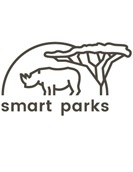Currently, the deployment of collars is a reasonably expensive and difficult matter for many organizations and individuals involved in conservation or wildlife law enforcement. OpenCollar wants the development of wildlife monitoring collars to enter the world of the cooperative, Internet-based community. By making the collars’ hardware and software and other information available online, the Initiative aims to attract and inspire talented students, researchers, and tech-savvy conservationists to create tracking systems that are more customizable and a better fit for use on different animals.
Making existing technology available for anyone who wants it also means anyone can inexpensively build and adjust collars, with for example a GPS, GSM or LoRa module, for their use cases.
One of the initiators, Jeroen de Looze, explains: “If we can make deploying collars easier then wildlife experts can collar more animals, generate more data, create more actionable intelligence and share as much as possible to benefit the conservation of our rapidly disappearing natural world.”
The conservation organization Smart Parks has kickstarted and funded the design and development of the first OpenCollar Elephant tracker that consist of different modules that can be combined into several different configurations, depending on the use case. The first testing starts at the end of March.
Other organizations that are supporting OpenCollar include WWF, Save The Elephants, Peace Parks, Vulcan EarthRanger, IRNAS, Lacuna Space, WILDLABS, Conservify, and Arribada.
For more information, please visit: opencollar.io or contact Laurens de Groot through his profile or via [email protected]


Add the first post in this thread.